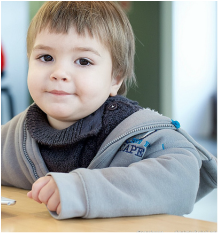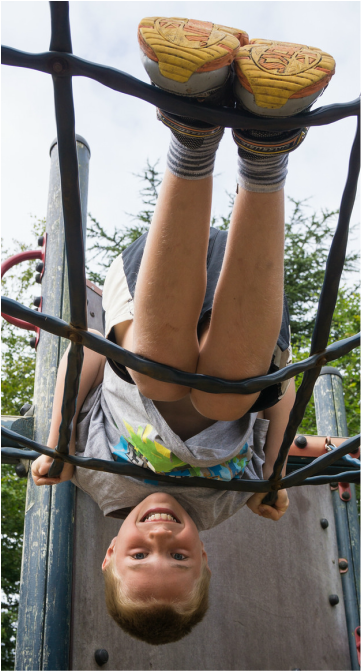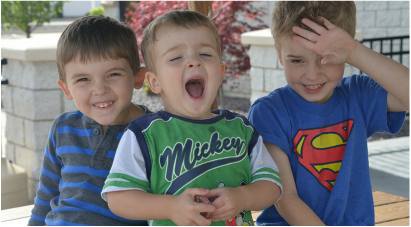
Jean Piaget was a Swiss psychologist who, like Maria Montessori, observed kids for thousands of hours and drew conclusions about their behavior. He taught us a great deal about how children develop which helps us to parent them more effectively. His ideas about how children's thinking evolves led us to make more accurate academic expectations. Today's curriculum (the body of knowledge we teach children), is based, in large part, on his work.
Kids between the ages of 4-7 think that rules are absolute and unchangeable. The concept of "imminent justice" governs their lives as they believe that misbehavior leads to punishment and punishment is based on the consequences of their actions. Children at this age are morally rigid. Right is right and wrong is wrong and there's little "in between".

At this age, kids understand secrets about parties and gifts. This is the time when you teach them about "healthy" secrets ("We're giving your brother a surprise party) and "unhealthy" secrets ("Don't tell your mom I touched you there.")
The second stage generally occurs between 10 and 13 and is the Conventional stage. This is where moral reasoning is guided by the desire to maintain laws and rules.
The third stage is from 14 to college where most people define morality in terms of self-chosen principles. Those self-chosen principles reflect the values and beliefs that are closely held.
Making a commitment to an honest family culture takes time. It also takes understanding that mistakes will be made. Consider those "errors in judgment" in light of your child's development age and abilities.

Kids and teens with Attention-Deficit/Hyperactivity Disorder are prone to lying because they simply do not monitor themselves and may not remember "what" they've done from one minute to the next. When challenged, they feel a need to come up with a response...any response.
If they have language processing disorders, they may struggle to understand your questions and may find it difficult to respond in a way that reflects their feelings and intentions.
When asking them questions, go for the "what" instead of "why". Even adults rarely understand their motivations, but most of us can describe "what" was going on.
Give them a chance to answer when you ask questions. Avoid interrogating them, but use the situation as an opportunity to teach them to have better judgment next time they encounter a similar situation. They don't become moral human beings overnight. Time, everything takes time. Ugh. I wish it could go faster, but you might remember your parents telling you that anything worthwhile is worth waiting and working for. You might not feel as though you are "getting through", but you'll be surprised when it's time for them to act independently.
We've often seen in our society that the "cover-up" was worse than the crime. Intentional avoidance of consequences is a huge mistake in judgment. Make sure your kids know that they can make mistakes and they will be forgiven and an opportunity for redemption and repair is always available. However, lying will be met with "swift and severe consequences". [OK, that's a phrase we developed in our family. Sounds formidable and we meant it.] Get the truth out and get on with life.
If your child lies constantly, regardless of the consequences, and no amount of punishment or discussion has an impact on their behavior, seek help. Your child may be developing a sociopathic personality style. If they are cruel to others and animals and appear to have little empathy or remorse, it's time to get support for yourself and family members. It is a long and difficult road parenting children who don't work with you to facilitate their growth. Don't go it alone.
Just do the best you can. Claudia
Join me on Facebook at Dr. Claudia McCulloch
At drclaudia.net, click on the "Ask Me" button and submit a question.



